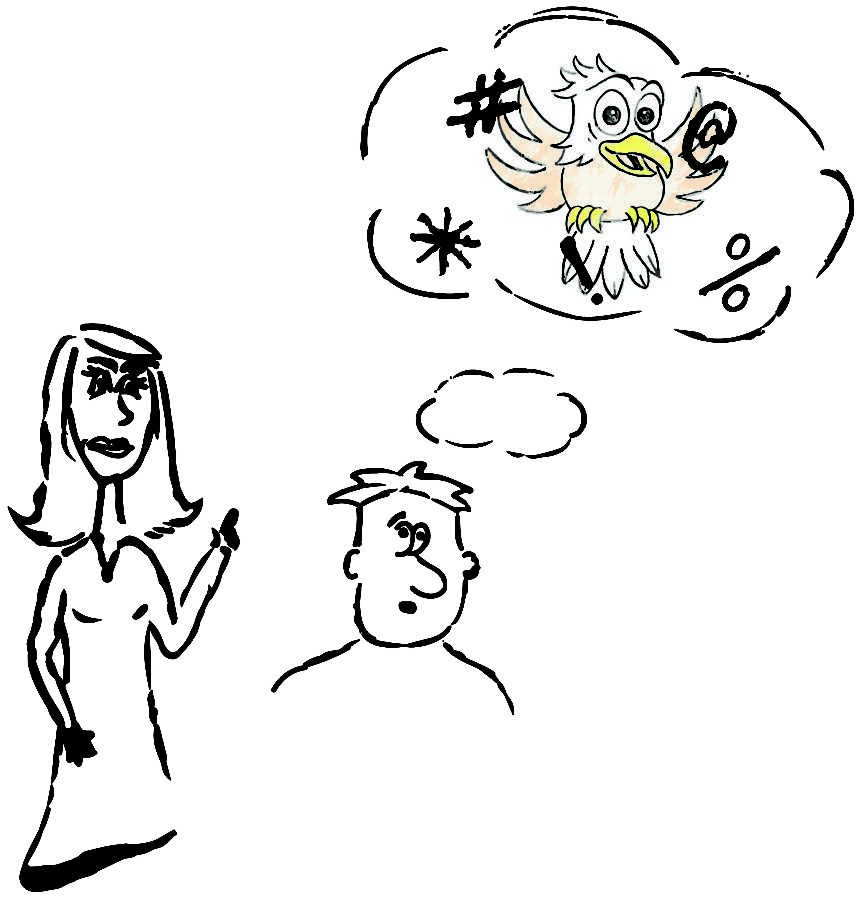STAFF EDITORIAL: Oh My Goodness
An eye for an eye, a tweet for tweet—punishment should always be equitable.
More stories from Tom Tom Staff
For the last century, Sequoits have roamed the halls, shouting chants in favor of our school, using expressions like “A-Town Takedown” and “Crush the Rush.”
More recently, however, a new phrase has come to surface that more and more students seem to be using: “Luck Fakes.” Of course, students don’t mean this phrase with any intended harm; they’re just using it as if it’s another school spirit chant.
But school administration seems to think otherwise.
While in previous years, students have gotten away with their “luck fakes” posts, recently some of our very own Tom Tom staff members have had to meet with administration concerning this topic. A couple staff members were in the background of a picture with the caption “#luckfakes,” the picture was put on a Snapchat story, the story was screenshotted and the picture found its way back into the hands of ACHS administration. That day, these students were called down to the office where they were stripped of some of their homecoming privileges, all because they were shown in a picture with an “offensive” caption.
In the student/parent handbook, which all students signed at the beginning of the year, it says on page 52, under the Student Activities section, that students are to “use only those cheers that support and uplift the teams involved.” Obviously, students aren’t going to start chanting “uplifting” cheers like “Go Lakes!”, but our cheers could show better sportsmanship. But nowhere in the handbook does it state that students or athletes will be punished for this behavior; it only states the expectations for players. And while in the “Code and Eligibility Requirements for Competitive, Extracurricular Athletics and Activities” it reads that “Students are expected to refrain from actions that…degrade others’ self esteem,” but again, these are expectations, not rules.
And for these actions to “degrade” another’s self-esteem, that would mean that the victim would have to feel attacked or offended. The students at Lakes must not be that offended if they themselves add the signature “#luckfakes” to some of their own tweets.
So where do we go from here?
Firstly, if students got in trouble for something that was on a Snapchat story, does this mean that administrators will be monitoring all social media? Will students have their Facebooks, Instagrams, Twitters and any other social media accounts under surveillance now, and will those students be held accountable for their actions? And where does administration draw the line? If saying a phrase such as “luck fakes” on a Snapchat story is considered “inappropriate,” then surely there are other students that should be punished for their tweets or their pictures on Instagram.
And that brings another issue to light. If administration is going to punish a very small fraction of the students who use the phrase “luck fakes,” then they need to maintain that punishment for all students who use this phrase. They need to set a standard, and not pick and choose when and how they want this rule to apply.
This should be expected of administration when applying to any topic.
If one athlete is benched for his actions, and his teammate makes mistakes of equal severity, the punishment should remain equal for both. A coach cannot make an exception just because the team might suffer from the player’s absence on the field or court. When one student is expelled from a club or activity, anyone else who commits those offenses should face expulsion as well.
If we want to build an equitable culture within our school, we feel as though the administration must create a set punishment for certain wrongdoings and keep these penalties consistent for all students. Decisions should be guided by a rule of equity, not a rule of exceptions.
To achieve a just system in school, we also find it necessary to set precedents. If a prior punishment has not been made, administration must be clear on their expectations when they institute a new set of disciplinary rules. The athletes that faced consequences for their actions on Snapchat did not know the end result would be sitting in the principal’s office, meeting with him and other staff members to discuss their punishments. If new rules are suddenly going to be created, then students need to be made aware of this. Otherwise, students may think their behavior is still considered acceptable. The aforementioned athletes/staff members weren’t aware of the repercussions; now, they want others to be aware as well.

